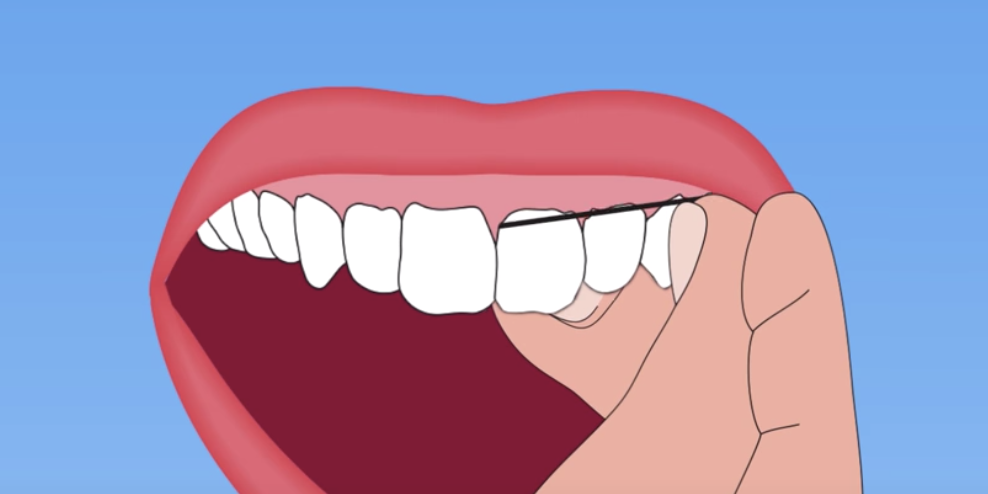
BI Video
- Flossing correctly involves wrapping the floss around the front of your tooth in a C shape.
- Most people just push the floss in and out of the gaps between teeth, but this isn't as effective.
- Be sure to be gentle when you floss, because being too aggressive can injure your gums.
- Visit Insider's Health Reference library for more advice.
Brushing your teeth twice a day isn't enough to maintain good oral hygiene. It's crucial that you floss as well, in order to prevent cavities and gum disease.
That's because flossing helps dislodge plaque that can lurk in hard to reach places like between teeth and below the gumline.
According to a 2017 survey reported by the American Dental Association, only 16% of people always floss at least once a day and 8% of respondents said they never floss. It's time to change this.
Here's how to floss the right way as well as some common flossing mistakes to avoid.
Flossing mistakes to avoid
There are a few common flossing mistakes that many people make, which can cause pain and bleeding, or simply won't result in the most optimal results. Here are some common flossing mistakes to avoid:
- Not getting around the sides of the tooth: If you are flossing without wrapping floss around each tooth in a "C" shape to hug the tooth, you aren't flossing thoroughly, says Klokkevold.
- Popping the floss right in and out: If you are just popping the floss between teeth and then popping it right back out, you are not effectively cleaning the biofilm from the tooth surfaces, says Klokkevold.
- Being too aggressive: Klokkevold says if you push or pull the floss into your gums too aggressively, this can cut into or injure the gum tissue. If you have inflamed gums due to gingivitis, this may result in your gums bleeding.
- Not flossing enough: If you aren't flossing daily, you aren't flossing enough. Don't make the mistake of only flossing when you feel like you have things stuck between your teeth. A 2019 review of 12 studies showed that the combination of brushing and flossing significantly reduced gingivitis risk compared to just brushing.
Insider's takeaway
Flossing is a very important daily habit to have. Whether you floss in the morning or evening is up to you, so long as you get it in once a day. It's equally important to have the right technique when you floss so that you can clean your teeth and gums effectively. If you experience discomfort or bleeding when you floss, contact a dental professional.